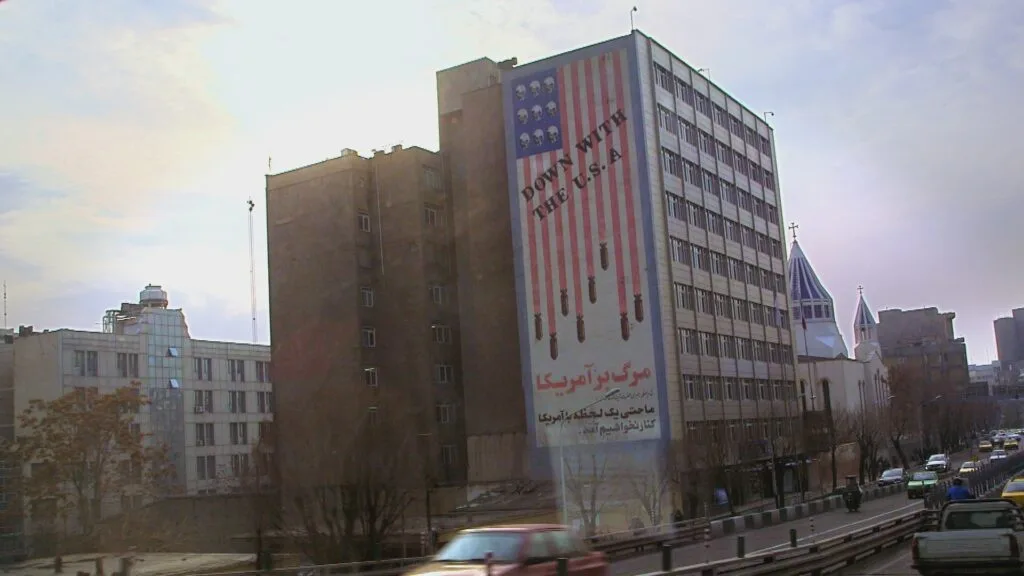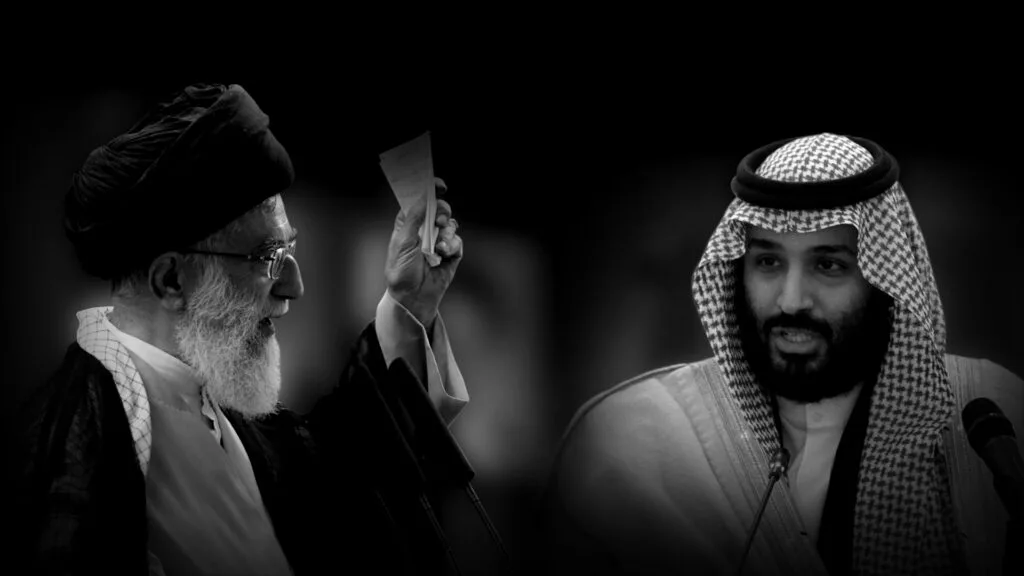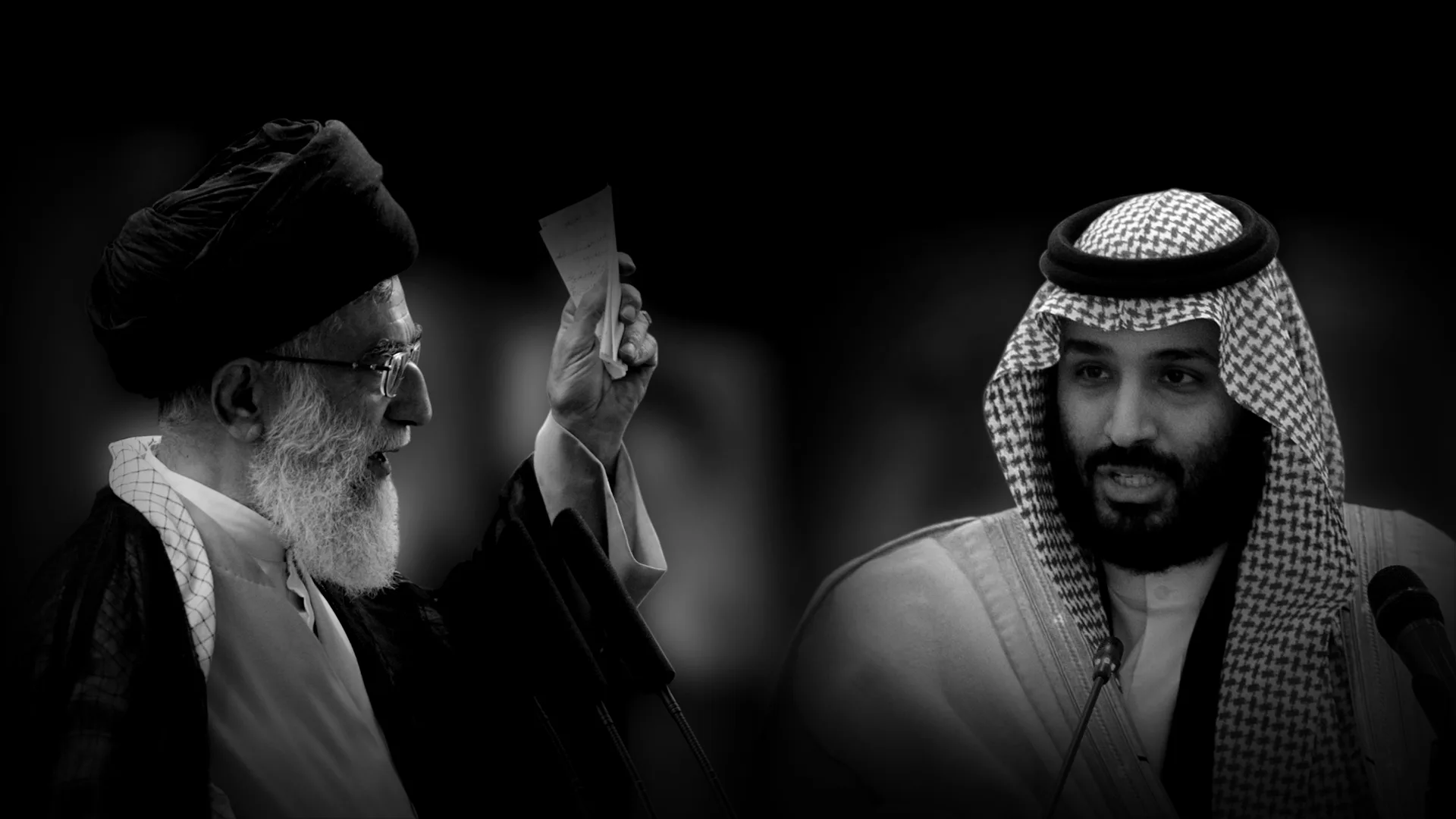Flashback: Inside the Complicated History Between the U.S. and Iran

June 21, 2019
Share
Tensions between the U.S. and Iran ramped up this week when the Iranian Revolutionary Guard Corps (IRGC) shot down a U.S. drone, nearly prompting retaliatory airstrikes. Iran said that the craft had entered into the country’s airspace; the U.S. claimed that the downed drone flew over international waters, characterizing the incident as an “unprovoked attack.”
It’s just the latest chapter in the complex history between Iran and the U.S., which FRONTLINE explored as part of the 2018 documentary Bitter Rivals: Iran and Saudi Arabia.
As shown in the opening chapter of the two-part film, at least some of the tension between America and Iran can be traced back to 1953, when a coup engineered by the CIA and British spies ousted Mohammed Mossadegh, the man Iran’s parliament picked to lead its first democratically elected government.
Mossadegh, who nationalized Iran’s British-run oil industry and drove the Western-backed shah from Tehran, was arrested and lived in captivity until his death 14 years later.
As the film recounts, following Mossadegh’s ouster, the U.S. played a key role in supporting the reinstalled shah’s repressive rule. That came through both words and military muscle: President Jimmy Carter praised the shah’s “great leadership”; the U.S. sold him weapons; and the CIA trained his secret police, who brutally suppressed opposition. The Iranian people’s discontent with the shah, and what they saw as decades of Western exploitation, would culminate in the 1979 revolution and the ascent of Ayatollah Khomeini.
“There was enormous enthusiasm and support because Khomeini’s initial line was not sectarian, against the Sunnis and such, it was anti-American,” Ahmed Rashid, author of Descent Into Chaos, told FRONTLINE in the film.
“We’re not so great at history in America,” former U.S. diplomat Ryan Crocker said. “When we say, ‘That’s history,’ it’s a pejorative. Well, the rest of the world takes history pretty seriously. And 1953 definitely resonated in 1979. It resonates today.”
To understand the evolution of the U.S. and Iran’s relationship — including how the hostage crisis would help cement Khomeini’s grip, and how anti-American sentiment would become a doctrine among the country’s authoritarian rulers — watch this excerpt of Bitter Rivals: Iran and Saudi Arabia:
For more backstory, stream the film in full.

Related Documentaries
Latest Documentaries
Related Stories
Related Stories
Explore
Policies
Teacher Center
Funding for FRONTLINE is provided through the support of PBS viewers and by the Corporation for Public Broadcasting, with major support from Ford Foundation. Additional funding is provided the Abrams Foundation, Park Foundation, John D. and Catherine T. MacArthur Foundation, Heising-Simons Foundation, and the FRONTLINE Trust, with major support from Jon and Jo Ann Hagler on behalf of the Jon L. Hagler Foundation, and additional support from Koo and Patricia Yuen. FRONTLINE is a registered trademark of WGBH Educational Foundation. Web Site Copyright ©1995-2025 WGBH Educational Foundation. PBS is a 501(c)(3) not-for-profit organization.





















